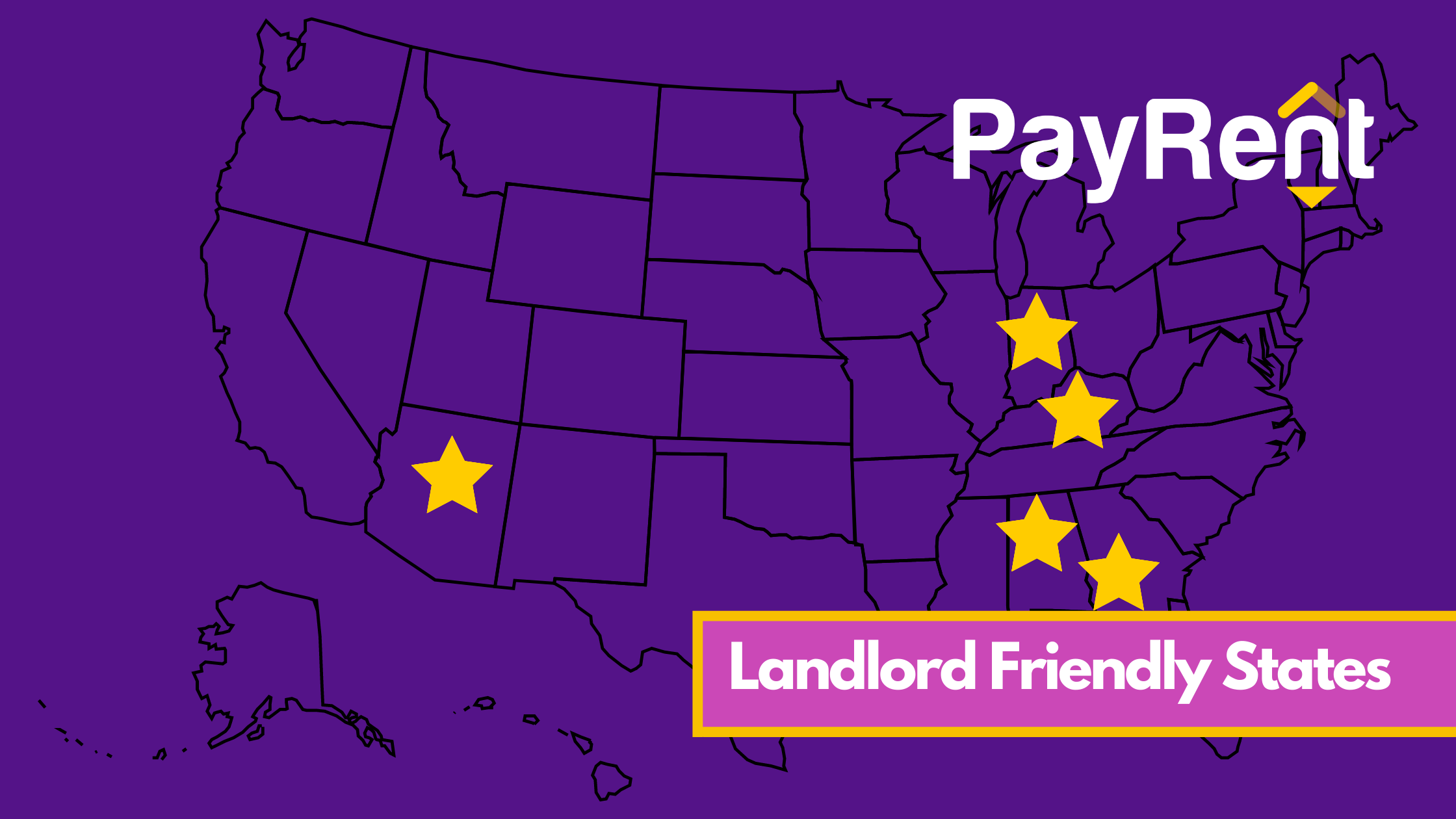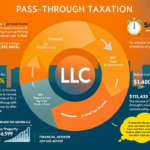When you’re a landlord, you’re also your property’s maintenance person, marketer, tax attorney, and more. As you bring new tenants to your property, you want to have the right tools on hand to streamline all that work.
Landlord-friendly states lighten the load you bear. Distinguishing landlord-friendly states from those that aren’t, however, is easier said than done. You’re probably wondering “what makes a state landlord friendly?”. Let’s take a closer look.
What Makes a State “Landlord-Friendly”?
A landlord-friendly state has more statutes ruling in favor of a landlord’s rights than it does a tenant’s. That means it’s easier for landlords to dictate who lives on their property, how much they pay for it, and how tenants can impact a landlord’s pocketbooks.
More specifically, landlord-friendly states have:
Landlord-Forward Eviction Processes
Tenants who can’t pay their rent are tenants who put an active strain on your cash flow. If you’re dealing with tenants who miss their rent, damage your property, or violate your community’s standard of living, you need to have the tools at your disposal to evict them.
Landlord-friendly states make the eviction process simple. While you will still have to take an evicted tenant to court, the process will require fewer frills and should have more legislation that speaks in your favor.
Limited Property Taxes
Property taxes are as inescapable as personal taxes. While you may not want to uproot and move just to find a better tax bracket, some states have kinder brackets for landlords than others. If you can find one near you, you can more readily purchase a property for future use.
Lenient Rules Surrounding Rent Control
Under ideal circumstances, you want to cultivate a friendly relationship with your tenants. However, that doesn’t mean you can’t increase your rent based on rising property values in the area, even if your tenants have been there a while.
Landlord-friendly states often have fewer statutes dictating how often and by how much you can raise the rent on your property. While these statutes may not give you free rein to do as you please, they can make it easier for you to supplement your income with tenants’ rent.
The Most Landlord-Friendly States
The southern states tend to have legislation that favors their landlords. That said, you don’t have to travel far to find a state that will make leasing property all the easier. The top 5 landlord friendly states in the nation are:
- Indiana– Indiana’s combination of landlord-friendly evictions and a 0.87 percent tax rate makes it one of the best states to lease property in. Landlords can evict tenants with only ten days’ notice, while residents on a month-to-month lease may be evicted immediately.
- Georgia– Georgia is one of the best states for landlords looking to raise their bottom line. The state does not limit its security deposits or late fees, and its 0.91 percent property tax rate is relatively low. What’s more, Georgia statutes do not require landlords to inform their tenants that they’re coming by for an inspection.
When it comes to the Georgia eviction process, landlords have what constitutes free reign. Landlords are not bound by a notice period for evictions unless they’ve included such a period in a tenant’s initial lease. As such, landlords can give their tenants a week to comply with an eviction notice. - Kentucky– Kentucky does not limit its tenant late fees or security deposits. Its tax rate on leased properties hovers around 0.86 percent, making tax season less stressful for the average landlord.
The eviction process in Kentucky requires landlords to provide residents late on their rent with a week to pay up. Other lease violations require 15 days’ notice before the landlord may file a suit. - Arizona– Arizona boasts one of the lowest property tax rates in the nation, coming in at 0.72 percent. Similarly, Arizona’s eviction process allows landlords to turnover abused property in little to no time at all. Landlords must provide between 5 and 10 days’ notice depending on the tenant’s violation. What’s more, tenants who don’t disclose their criminal history may face the unconditional quit notice, a notice that allows landlords to remove them from the property without prior notice.
- Alabama– Alabama takes landlord-friendly legislation to a new level. For starters, landlords do not need a rental license. Also, Alabama law places no limitations on late fees, so you can charge your renters however you’d like when they are past due on payments. When you pair that freedom with the state’s 0.42 percent tax rate, leasing property becomes one of Alabama’s most profitable past times.
Alabama’s eviction process is also landlord-friendly. All tenants who violate their leases must have 14 days of warning before a landlord can go to court. Tenants who fail to pay their rent, however, may receive only seven days of notice.
Purchasing a Rental Property: Where to Plant Your Roots
When you’ve been in the rental game for years, you want to lease property in a state that’s got your back. These landlord-friendly properties make sure that you have the tools to protect your investment.
For more information about landlord-friendly legislation, turn to PayRent. This online rent collection platform makes it easier than ever for your tenants to pay their rent promptly










